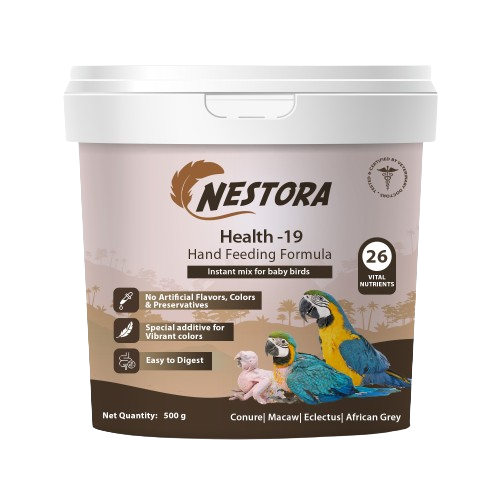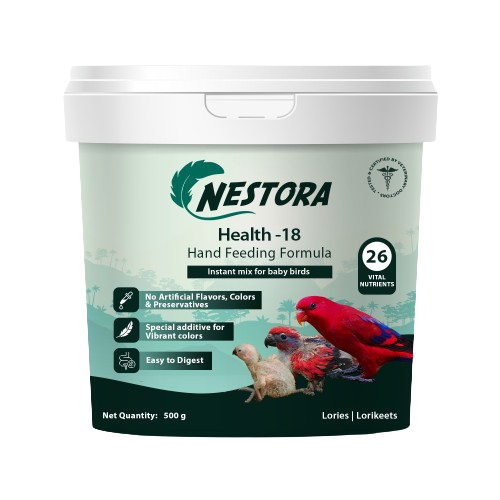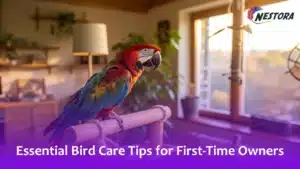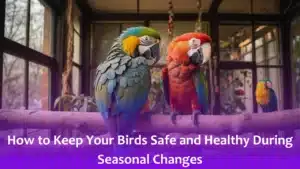
Basic Guidelines that Every Beginner Should Follow When Taking Care of Birds
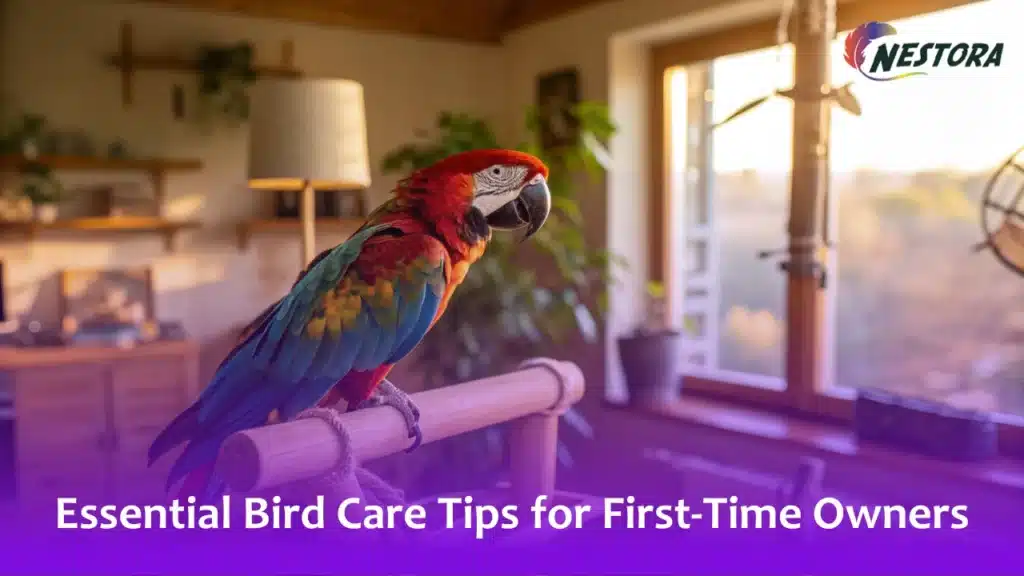
Introduction
Birds are colorful and happy to have around your home, but to own one, you need to have more than just food and a swing. First-time bird owners should especially ensure that they learn more about the bird to ensure that they manage to keep him healthy at all times. The following basic guidelines are relevant to keep your pet happy and engaged all through.
Table of Contents
ToggleDiscover essential bird care tips for first-time owners
Caring for a pet bird can be a rewarding experience, but it requires understanding and commitment. First-time bird owners should familiarize themselves with essential care practices to ensure their feathered friends thrive. This guide highlights key tips on diet, environment, social interaction, and health maintenance for a happy bird. By following these essential tips, first-time bird owners can create a nurturing environment that promotes the health and happiness of their new companion.
1. Find and select the Perfect Bird for Your Life and Routine
In the process of choosing a pet, select a bird that will become a satisfactory companion by developing some prior knowledge of the various species. Birds like finches and canaries are low maintenance, while parrots and cockatiels require more attention and social interaction. Consider the following factors:
- Time Commitment: Larger birds often demand more time for training and bonding.
- Space: Smaller birds like budgies need less space compared to macaws.
- Noise Level: Some birds are more vocal than others; think about your tolerance for noise.
2. Prepare a Proper Habitat
Providing a proper environment is one of the best practices when it comes to bird handling. Which means that the cage should accommodate a bird in such a way that the wings of the bird should touch the bars of the cage.
Here are someFirst-time bird owner tips:
- Cage Size: Select a cage that is appropriate for your bird’s size and activity level.
- Bar Spacing: Ensure the spacing is narrow enough to prevent your bird from escaping or getting stuck.
- Location:Put the cage in a brightly lit area of your home or house and always ensure that it is not placed where there is drought or sunlight or where there are toxic fumes.
- Accessories: This should consist of towers of different diameters, toys for intellectual activity, and a water dish.
3. A bird feeding advice -How to maintain a Balanced Diet
Feeding your bird the right food is crucial forenhancing its health. However, seeds’ being a basic component of their diets should not mean that they only feed on seeds. Birds should therefore be given several foods including:
- Pellets: A potential dietary supplement suitable to a range of birds and species based on nutritional adequacy.
- Fresh Fruits and Vegetables: Provide safe avian fruits such as apples, carrots, spinach, and any other fruits which is preferable. Keep your bird away from avocado as it is poisonous to them, other products that should not be within reach of your bird include chocolate, caffeine and alcohol.
- Protein: Plain creamed eggs or beans may be added to increase the nutritive value.
- Water: Water should always be in plenty and as fresh as possible. Replace it daily to avoid a buildup of bacteria and other things that are unhealthy for their consumption.
4. Prioritize Hygiene
Proper care also helps to reduce instances of diseases that affect birds hence keeping your bird healthy.Here’s how:
- Clean the Cage: Empty bowls with droppings, leftovers and other debris and variants should be conducted at least once a day. Change the water and wash the cage and anything that the birds can chew on such as toys perches etc.
- Bathing: Many avian species like a soak, or even a shower, I know this sounds unbelievable, but it is true. You can offer them a saucer containing a little water or just sprinkle their approximate area with lukewarm water.
- Grooming: If necessary, cut their nails and beak but a vet can teach you the right way to do it.
5. Create a Bond with Your Bird
Birds are social animals, and they cannot do without interacting with other birds or objects. It is something which requires time and regular reinforcement into the relationship.
Talk to Your Bird: Try to take time to talk gently to your bird so that they can get familiar with the sounds of your voice.
Hand-Training: When training the bird to step on your hand try to introduce this slowly with the use of treats.
Socialization: Offer regular play and training sessions. Just be around them to communicate with them physically.
6. Engage the Mind and the Body
Lethargy as a result of boredom results in other bad behaviors in birds, for example, feather picking or even loud squawking. Keep your bird engaged with:
Toys: Flip over toys every few days so baskets of toys do not become boring. Those that promote chewing, foraging and the use of problems solving abilities should be preferred. Exercise: Gently let your bird out from the cage occasionally, enable it to play in a safe environment under keen supervision.
Nestora: Hand feed your bird and encourage steps like ‘step up’ or waving to have them gain your trust and be mentally stimulated.
7. Ensure Regular Health Checks
Birds are particularly good at concealing their sickness, therefore constant checkups are advisable. Watch for signs such as:
- Loss of appetite and droppings may also become noticeable.
- Feather erectsinstead of relaxed or sluggish
- Trouble breathing or having a pale colored beak or feet
Take your birds for an annualcheckup in an avian clinic and seek vet attention at the first sign of any illness
8. Be Mindful of Safety
Birds are curious and fragile creatures, making safety a top priority:
Hazards: This is especially important, you should ensure that your bird does not get close to fans, windows, mirrors or any poisonous plant.
Chewing Dangers: Birds love to chew things; use chains, wires, or any other material of a certain length when all dangerous articles are removed from the cage.
Supervised Playtime: Birds should always be monitored when outside the cage so as not to get into trouble.
9. Revisit Their Self-Induced State
This is why it is necessary to learn about the basic instincts of the birds so that you can build the right rapport with them.
Sleep: Many birds should sleep 10-12 hours without interruption. It is recommended to cover their cage with a mesh at night.
Molting: The birds can molt. It is essential to offer additional feed in case they deplete their energy reserve to grow new feathers.
Territoriality: Certain species may get overprotective of their cage. Allow them to be defensive when you notice this behavior from them.
10. Educate Yourself Continuously
It turns out that being a careerof a bird is an activity that is carried out in a continual learning manner. Stay informed about your bird’s species-specific needs by:
- Reading books and articles.
- Bird-watching clubs and societies either online or physical.
- Consult veterinarians forprofessional advice.
11. The last strategy can be regarded as: Build a safe social environment.
Birds are social animals that need a positive surrounding to live. Avoid shouting at them, don’tjerk or leave suddenly. Don’t leave them lonely for hours. Keep a companion of the same species to play with. Be cautious with cats, as they can be very dangerousto birds.
12. Be Patient and Compassionate
This implies that birds may take some time to learn about anew environment they found themselves in. Bear with them as they familiarize themselves with you because they are still learners. Mark a small victory when your bird begins to accept your presence and touch; /or even start mimicking sounds.
Conclusion
Birds are the best to have as pets since they bring happiness, affection and amazing actions. But, yes, they demand time, responsibility, and a willingness to learn. Staying aware of simple aspects of care will enable you to provide favourable conditions for your bird. They will give you a chance to have a beautiful, long-term relationship with your companion, your feathered companion.

